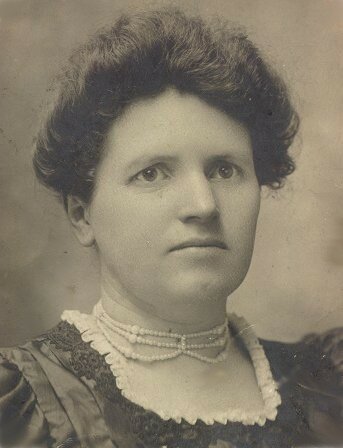B. M. Bower

From Wikipedia, the free encyclopedia
Bertha Muzzy Sinclair or Sinclair-Cowan, née Muzzy (November 15, 1871 – July 23, 1940), best known by her pseudonym B. M. Bower, was an American author who wrote novels, fictional short stories, and screenplays about the American Old West. Her works, featuring cowboys and cows of the Flying U Ranch in Montana, reflected "an interest in ranch life, the use of working cowboys as main characters (even in romantic plots), the occasional appearance of eastern types for the sake of contrast, a sense of western geography as simultaneously harsh and grand, and a good deal of factual attention to such matters as cattle branding and bronc busting."
Biography
Born Bertha Muzzy in Otter Tail County, MN and living her early years in Big Sandy, Montana, she was married three times: to Clayton Bower, in 1890; to Bertrand William Sinclair,(also a Western author) in 1912; and to Robert Elsworth Cowan, in 1921. Bower's 1912 novel Lonesome Land was praised in The Bookman magazine for its characterization. She wrote 57 Western novels, several of which were turned into films.
Western Short Stories by B. M. Bower
The Spirit of the Range
B. M. Bower
Cal Emmett straightened up with his gloved hand pressed tight against the small of his back, sighed "Hully Gee!" at the ache of his muscles and went over to the water bucket and poured a quart or so of cool, spring water down his parched throat. The sun blazed like a furnace with the blower on, though it was well over towards the west; the air was full of smoke, dust and strong animal odors, and the throaty bawling of many cattle close-held. For it was nearing the end of spring round-up, and many calves were learning, with great physical and mental distress, the feel of a hot iron properly applied. Cal shouted to the horse-wrangler that the well had gone dry—meaning the bucket—and went back to work...Read more of The Spirit of the Range.
The Lonesome Trail
B. M. Bower
This story is written in six parts
A man is very much like a horse. Once thoroughly frightened by something he meets on the road, he will invariably shy at the same place afterwards, until a wisely firm master leads him perforce to the spot and proves beyond all doubt that the danger is of his own imagining; after which he will throw up his head and deny that he ever was afraid—and be quite amusingly sincere in the denial.
Read The Lonesome Trail... Part 1 / Part 2 / Part 3 / Part 4 / Part 5 / Part 6